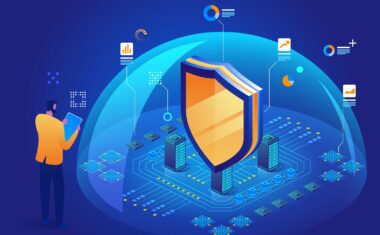How To Get Into Cybersecurity Regardless of Your Background

In this article
- What Is Cybersecurity?
- What Does a Cybersecurity Analyst Do?
- What Are the Skills Required for a Career in Cybersecurity?
- How To Get Into Cybersecurity (Regardless of Your Background)
- Cybersecurity Jobs To Consider (Based on Your Background)
- Resources To Land an Entry-Level Cybersecurity Job
- Average Cybersecurity Salaries
- FAQs About Getting Into Cybersecurity
As more companies and organizations realize the extent to which they need to protect their data and assets from hackers and other threats, the demand for skilled cybersecurity specialists is growing every year.
But what does it take to become a cybersecurity professional? Many wonder if they can get into this field without specific education or training. The good news is that there are plenty of options for those who want to break into cybersecurity—you just have to know where to look.
In this article, we’ll go over the skills necessary for becoming a cybersecurity professional and explain how you can get started on your path toward becoming a cybersecurity expert.
What Is Cybersecurity?
Cybersecurity is the process of protecting digital information, systems, and networks from unauthorized access or damage. Cybersecurity is vital because leaking sensitive information can cause financial damages, loss of confidence in a company or government, and compromise national security.
What Does a Cybersecurity Analyst Do?
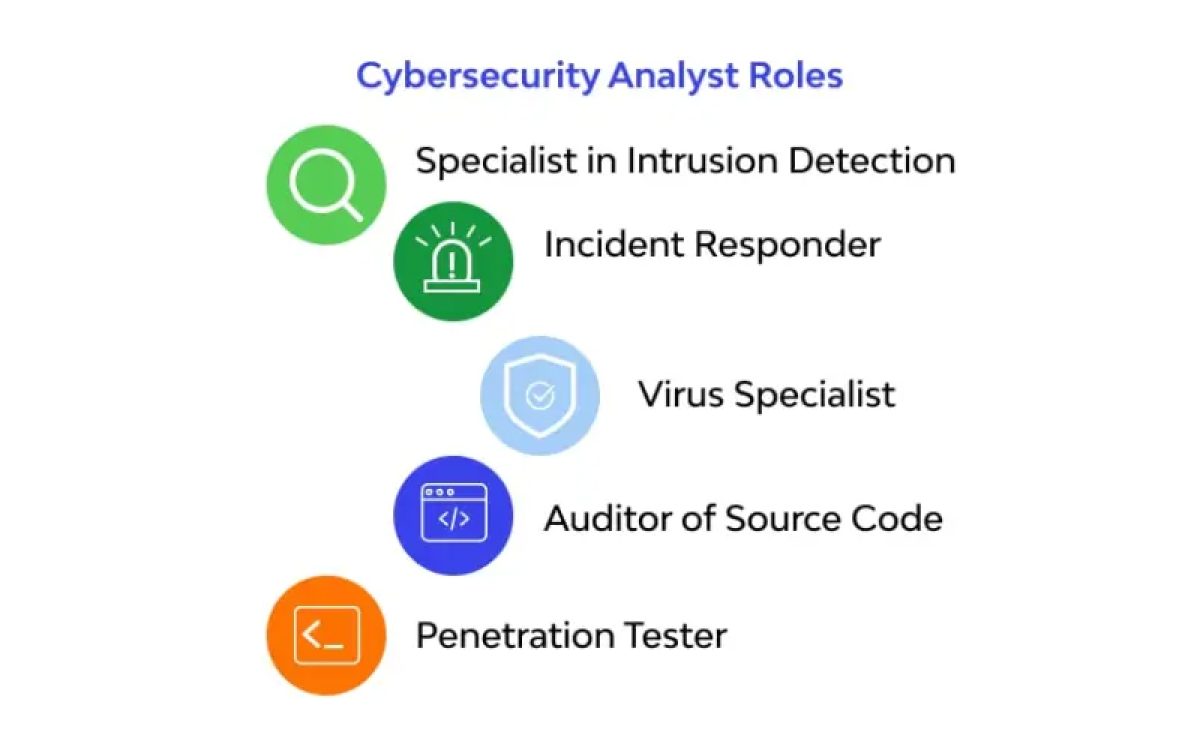
Cybersecurity analysts work to keep your data safe from unauthorized access, theft, or destruction.
Cybersecurity professionals may do their jobs in a variety of ways:
- They can work in information security roles that protect a company’s internal networks and data from outside threats.
- They can work in risk management roles that ensure companies take appropriate measures to protect themselves against cybercrime.
- They can work in compliance roles that ensure companies comply with cybersecurity and data protection laws.
What Are the Skills Required for a Career in Cybersecurity?
There are many skills required for a career in cybersecurity, but here are the top twelve employers look for.
Technical Skills
Here are some of the most common technical skills needed for this exciting career path:
Risk Analysis and Management
You’ll need to know how to assess risk and make smart decisions about mitigating it, using your knowledge of operating systems, encryption, network security, security incident handling and response, and programming languages.
Knowledge of Operating Systems
This includes understanding how different operating systems work (like Windows or Linux) and how OSs interact with one another.
Encryption
You’ll need to know how encryption works so that you can secure sensitive data throughout its lifecycle—from creation to storage to transmission and beyond.
Network Security
Understanding what makes up a network-based system will help you know where vulnerabilities might exist so that you can protect against them effectively.
Security Incident Handling and Response
This involves responding to incidents, collecting evidence, and investigating the cause. It’s important that you have good problem-solving skills and can think on your feet.
Programming Languages
Cybersecurity professionals must be familiar with programming languages such as Python, JavaScript, and Java.
Soft Skills
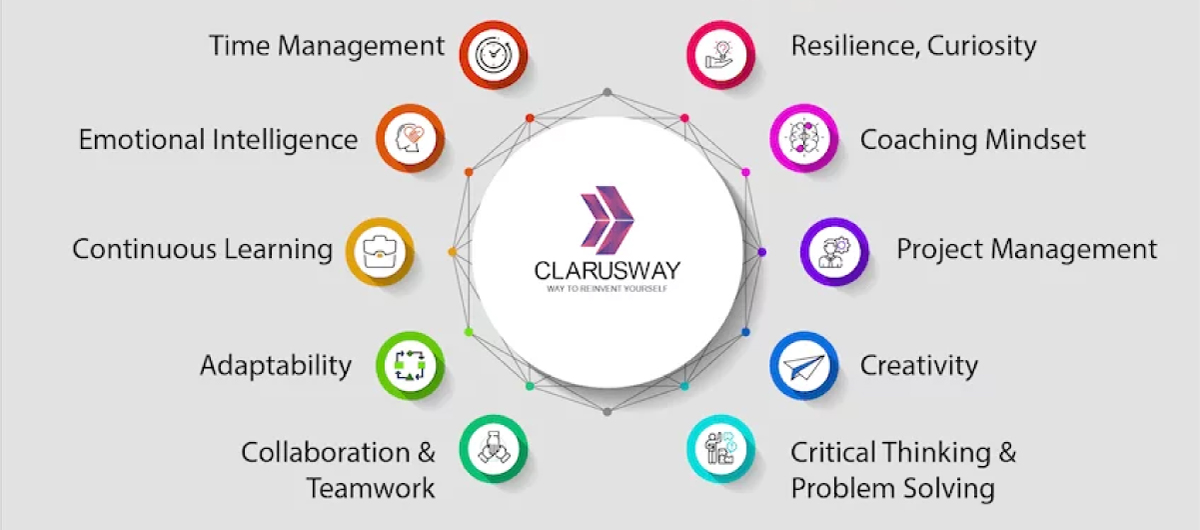
Soft skills are essential in any career but are especially crucial in cybersecurity. If you want to work in this industry, you’ll need these soft skills:
Problem-Solving
Solving problems is one of the most significant parts of cybersecurity. If your system has a problem, you must figure out what’s wrong and fix it.
Analytical Mindset
Breaking down problems into smaller pieces helps you solve those problems more quickly and easily.
Collaboration and Teamwork
The cybersecurity field is becoming increasingly collaborative, so it’s important to have the soft skills that allow you to work well in teams.
Flexibility and Adaptability
Because technology changes so quickly and often, you’ll need to be able to adapt your approach when necessary—that means being flexible and open-minded.
Get To Know Other Cybersecurity Students
Dylan Wood
Cybersecurity Career Track Student at Springboard
Dipen Patel
Cybersecurity Analyst at Accenture
Vianey Luna
IT Security Specialist at Cooper Machinery Services
Communication
Cybersecurity professionals need strong communication skills because they often have to explain technical terms in layman’s terms to non-technical people.
Persistence
It takes time for security professionals to learn what they need so they can build effective solutions for their clients or employers. Persistent students will have an easier time learning this material because they won’t get discouraged when they don’t immediately succeed.
How To Get Into Cybersecurity (Regardless of Your Background)
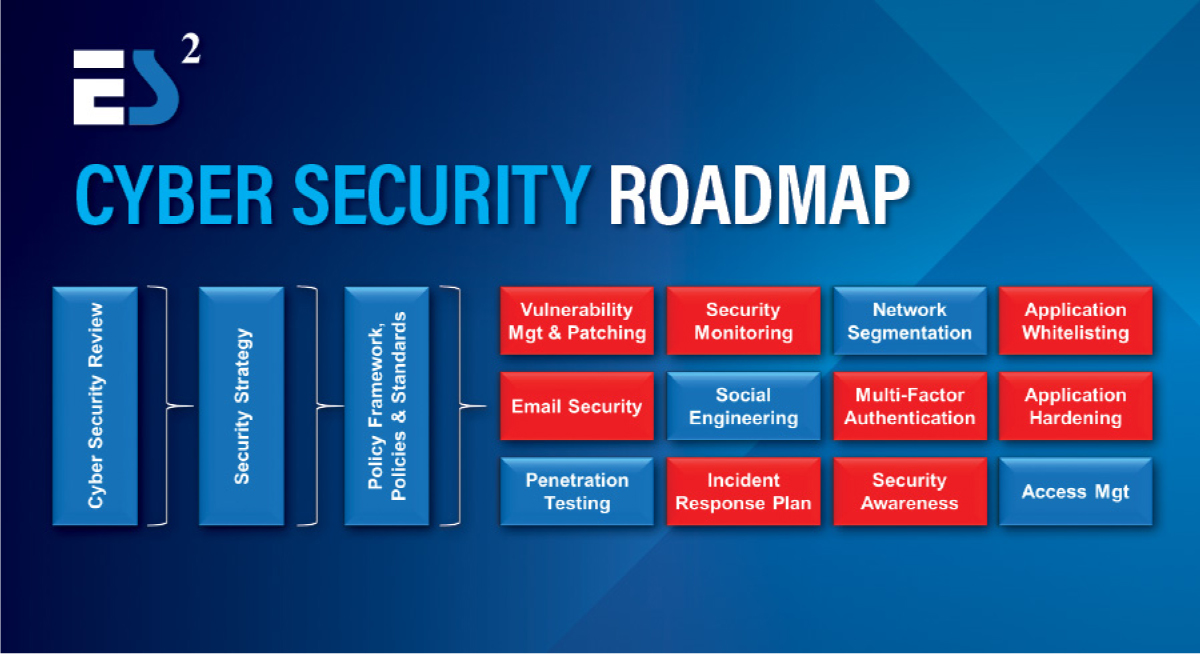
-
Identify What You Need To Learn (Based on Your Background and Experience Level)
-
Brush Up on the Basics
-
Determine Your Ideal Job Role and Career Path
-
Get Familiar With Cybersecurity Tools
-
Pursue a Cybersecurity Course or Bootcamp
-
Take Up Volunteer or Freelance Work To Build Your Portfolio
-
Find a Mentor
-
Consider a Certification
-
Develop Your Network
-
Build Your Resume and Apply for Jobs
Here’s how to ensure your background doesn’t prevent you from getting into cybersecurity—and how to start moving towards your dream job right now.
Identify What You Need To Learn (Based on Your Background and Experience Level)
First, you need to figure out how much experience you have with computers and software. Expanding your networking and network security knowledge is paramount if you’ve worked with them for years. If that’s the case, then consider getting yourself a certification.
If your background is more diverse, then perhaps you should learn more about what goes on inside computers—the operating systems they run on and how they communicate. That way, you can understand why users need protection from threats like viruses and spyware.
Brush Up on the Basics
If you’re just starting in cybersecurity, you’ll want to focus on learning the fundamentals.
CIA Triad
To protect your data, it’s important to understand what you’re trying to protect and against whom. The CIA triad is a standard model of security that considers confidentiality, integrity, and availability when making decisions about how to secure your data.
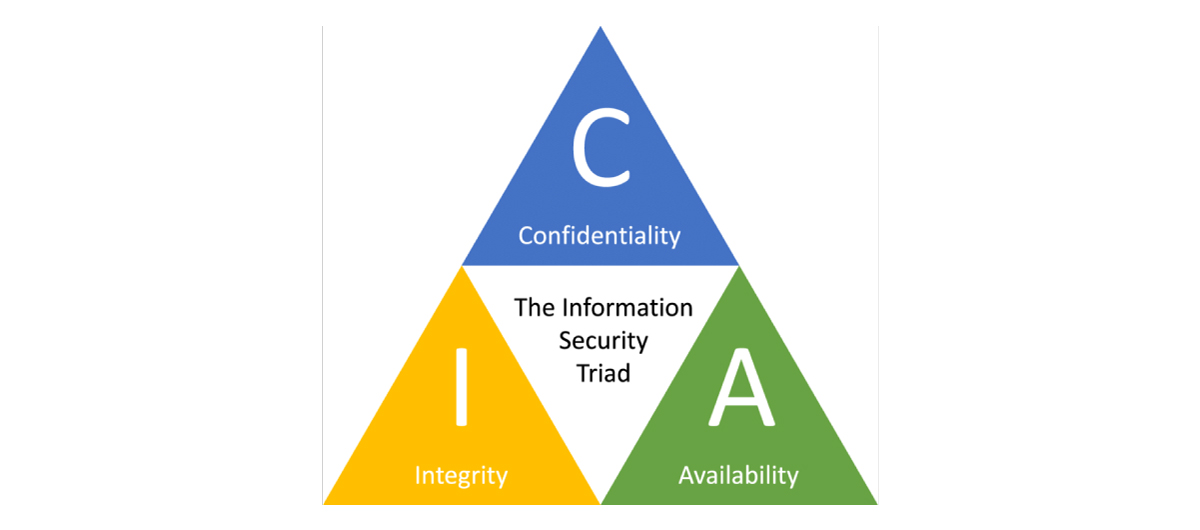
Source: Research Gate
NIST Cybersecurity Framework
The framework is a set of guidelines that helps you determine what kind of threat you’re up against and what risks are involved in handling that threat. It also provides guidance on various solutions for handling those threats.
Cyber Threats

Cyber threats come in many shapes and sizes—from industrial espionage to malware attacks to ransomware—and understanding the types of threats can help you make better decisions about handling them in your business environment.
Risk Assessment and Vulnerability Analysis
Once you know what kind of threat(s) exist for your company, you’ll want to analyze all the risks associated with each threat to prioritize the ones that pose the greatest danger for your organization.
Incident Handling and Response
If you’re dealing with an internal incident, isolate the source of the problem as soon as possible so that it doesn’t spread. Suppose you’re managing a large company’s IT infrastructure. This may mean turning off specific systems temporarily or isolating others from the network.
Encryption
This is one of the most effective ways to protect your data from unauthorized access and tampering. It uses mathematical algorithms to scramble information, so only authorized parties can see it in its original form.
Determine Your Ideal Job Role and Career Path
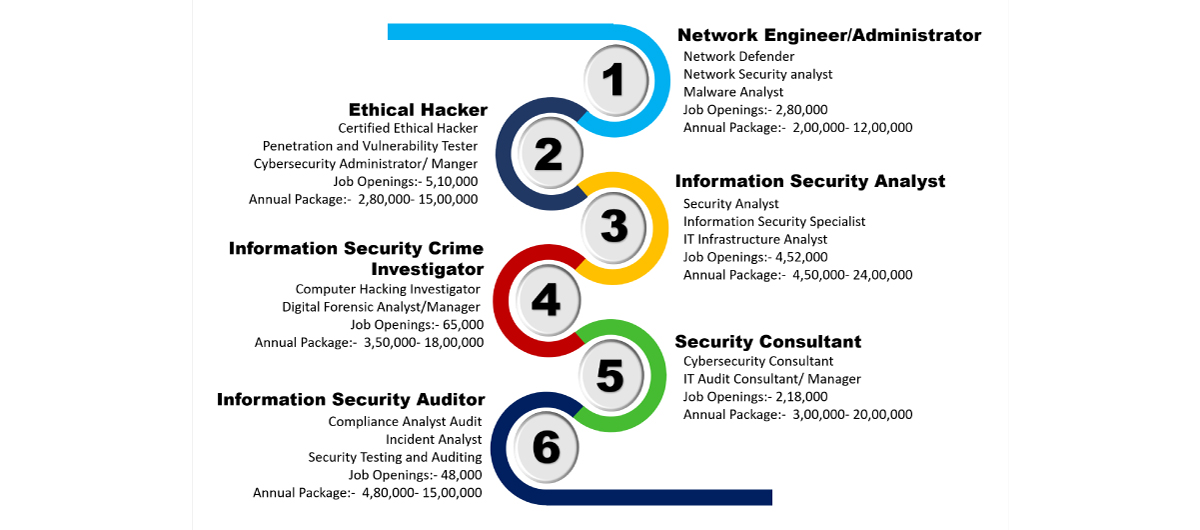
When looking for a cybersecurity job, it’s important to understand the different available positions. Each role has its responsibilities and qualifications.
For example, security engineers are responsible for designing, building, and maintaining the security of an organization’s systems. They use their technical knowledge to design and implement new ways to protect the company’s data systems from hackers or other threats.
On the other hand, security analysts monitor networks and systems to detect potential threats or security breaches that could lead to a cyberattack against an organization’s network or computer systems.
Get Familiar With Cybersecurity Tools
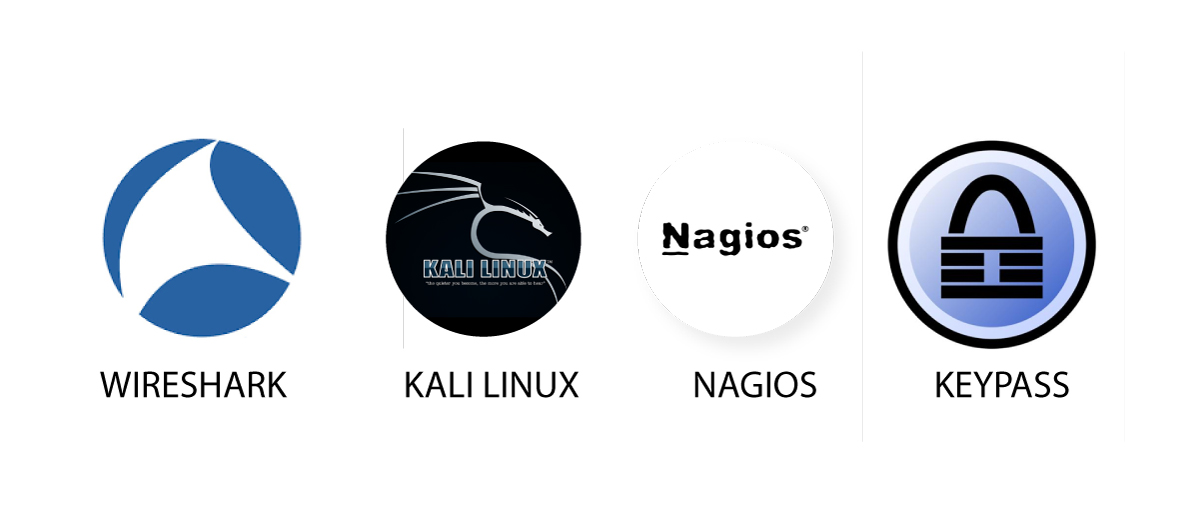
Cybersecurity tools are an important part of protecting your company’s data. Here are a few of the most commonly used tools:
Wireshark
It’s a free and open-source packet analyzer that lets you capture and inspect traffic running on a computer network. You can use it to view, analyze, and troubleshoot traffic to find security holes.
KaliLinux
It’s an operating system designed for penetration testing (aka hacking). It has hundreds of pre-installed hacking tools that can be accessed through one simple interface.
Nagios
It’s an open-source monitoring system that allows organizations to track the status of their IT infrastructure, including servers, networks, applications, and services.
KeyPass
It’s a free, open-source password manager that allows you to store all your passwords in one place so that you can easily access them on any device.
Pursue a Cybersecurity Course or Bootcamp

If you’re interested in pursuing a career in cybersecurity, a cybersecurity course is probably your best bet. These courses will give you the most thorough understanding of the subject matter and provide networking opportunities to help you find a job.
Related: Coding Bootcamps Loans: 7 Ways To Pay for Your Bootcamp
A bootcamp might be a better choice if you’re looking for more hands-on experience. There are many reputable cybersecurity bootcamps from which you can choose—just make sure they’re accredited by organizations like CompTIA. Bootcamps are also generally less expensive than traditional degrees in cybersecurity.
Take Up Volunteer or Freelance Work To Build Your Portfolio
Volunteering or freelance work in cybersecurity will help you build your portfolio. You’ll be able to prove your skills, gain real-world experience, and show off your field knowledge. It’s also a great way to network with other professionals in the cybersecurity industry.
Related Read: 11 Cybersecurity Projects to Grow Your Skills & Portfolio
Find a Mentor
If you have a network of colleagues or even friends already involved in cybersecurity, reach out and ask them if they’d be willing to meet for coffee or lunch. You can also use social media platforms like LinkedIn or Facebook to find people who might be willing to help out.
Moreover, several organizations offer mentorship opportunities for professionals seeking advice on improving their cybersecurity skills.
Consider a Certification
Are you a cybersecurity professional looking to add to your skill set? Certifications are a great way to prove your expertise, and they are beneficial if you’re trying to get the attention of recruiters or hiring managers.
Here are the top three cybersecurity certifications we recommend:
CompTIA Security+

This advanced certification is ideal for IT professionals seeking to expand their security knowledge. It validates the skills required to manage security in a business environment confidently. It’s also an industry standard, recognized by over 90% of Fortune 500 companies.
Microsoft Certified: Security, Compliance, and Identity Fundamentals
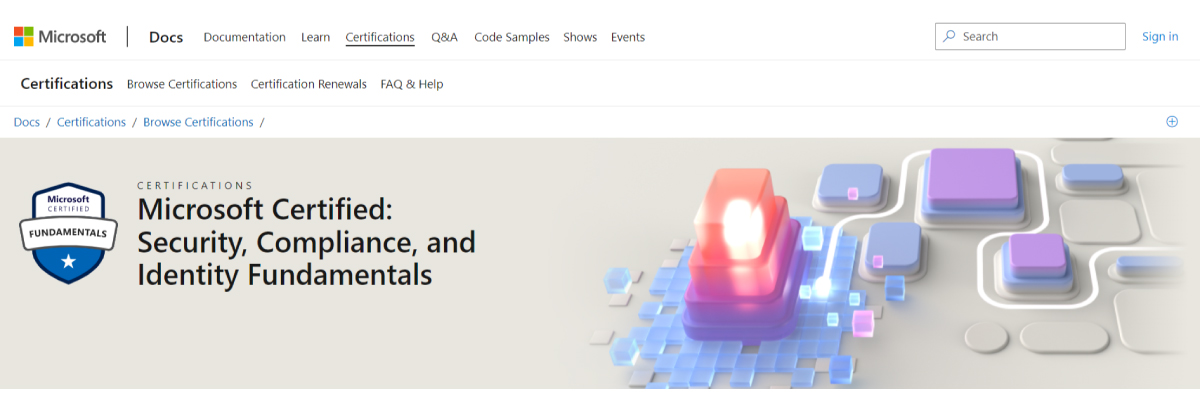
This covers security risks and threats, incident response and detection, managing risk, and identity management. With this course, you’ll gain a deeper understanding of IT security fundamentals if you are new to the field or need a refresher on your knowledge base.
CyberSecurity Fundamentals Certificate (ISACA)
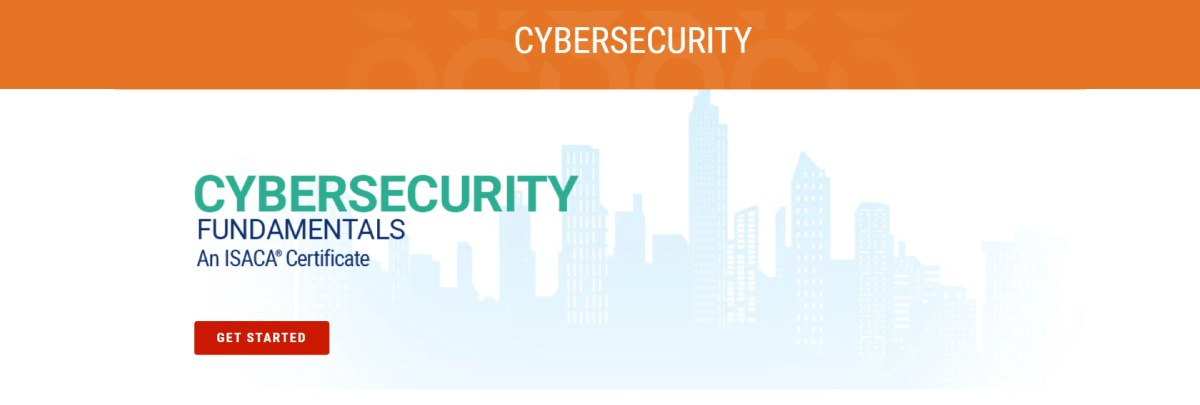
This entry-level certification is designed for professionals who want to demonstrate their knowledge of foundational concepts in IT security. The course covers risk management, components of cybersecurity network architecture, classes of attacks, emerging technologies, and more.
Develop Your Network

If you want to get into the world of cybersecurity, developing your network is one of the most important things you can do. The more people you know connected to this industry, the better your chances of getting hired and advancing in your cybersecurity career.
LinkedIn is one of the most powerful tools for developing your network in cybersecurity. It’s a great way to connect with others who share your interests and previous experience and can be a valuable resource for finding job opportunities and learning about new trends in the industry.
Online Communities and Forums
Online cybersecurity communities and forums are another great way to connect with like-minded individuals interested in cybersecurity issues. You can find communities on cybersecurity blogs, Reddit, Twitter, Facebook, or even LinkedIn. These sites can help you make connections that will last long after you’ve left them behind—and they’re also a great way to keep up-to-date on breaking news in the industry.
Conferences and Meet-ups
Conferences and meet-ups are an excellent way to meet other professionals working in the field of cybersecurity, as well as learn more about what’s going on within the industry at large. Often these events will feature speakers from all over who specialize in different areas of information security. Conferences are also usually sponsored by companies that sell products related to cybersecurity.
Build Your Resume and Apply for Jobs

Make sure your resume is up to date and reflects the skills you want to show off. If you have any internships or volunteer work related to cybersecurity, include them.
You can build a good foundation for applying for jobs by getting some professional experience working in the field first. It might be through an internship or volunteering at an organization that deals with cybersecurity issues. You could also do some research on companies that deal with cybersecurity issues and reach out to them directly about internship opportunities or other ways you might be able to get involved with their work.
Cybersecurity Jobs To Consider (Based on Your Background)
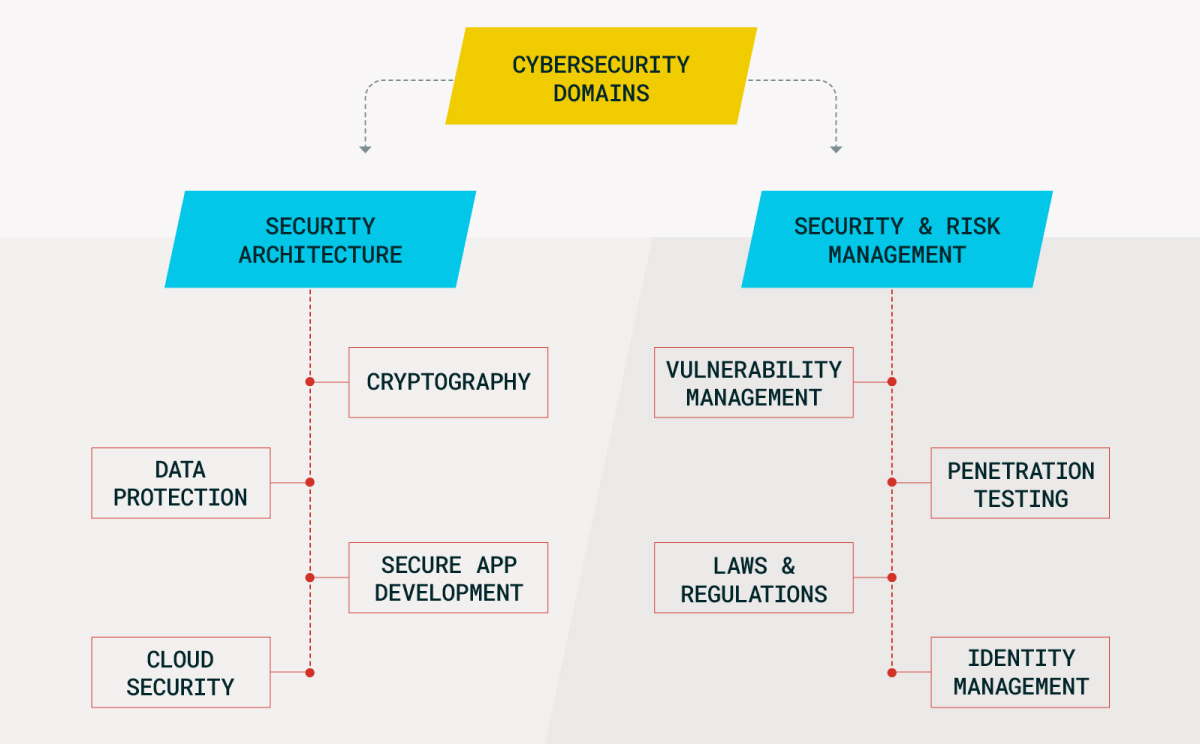
If you’re interested in a career in cybersecurity, it can be helpful to consider which types of positions might be a good fit for your background. Here are some factors to consider based on your background:
No Technical Experience or Background
If you’re looking for a career in cybersecurity but don’t have any experience or background in the field, there are still plenty of options. Here are some of the most popular:
Network Administrator
A network administrator manages a company’s network infrastructure and security. This includes installing and configuring hardware and software, providing technical support for users, and ensuring that systems are secure.
Related Read: How To Become a Network Engineer in 6 Steps
Vulnerability Analyst
A vulnerability analyst is an individual who analyzes potential vulnerabilities in computer systems and networks. They work with a team of other analysts to identify potential threats, determine the severity of those threats, and recommend solutions to mitigate them.
Incident Analyst
An incident analyst monitors systems for any signs of a breach or attack on their security system. They then report this information to their team leader to take appropriate action.
Junior Penetration Tester
A junior penetration tester is responsible for discovering vulnerabilities in computer systems and networks so that they can be fixed before cyber attackers exploit them.
Background in IT or Another Technical Field
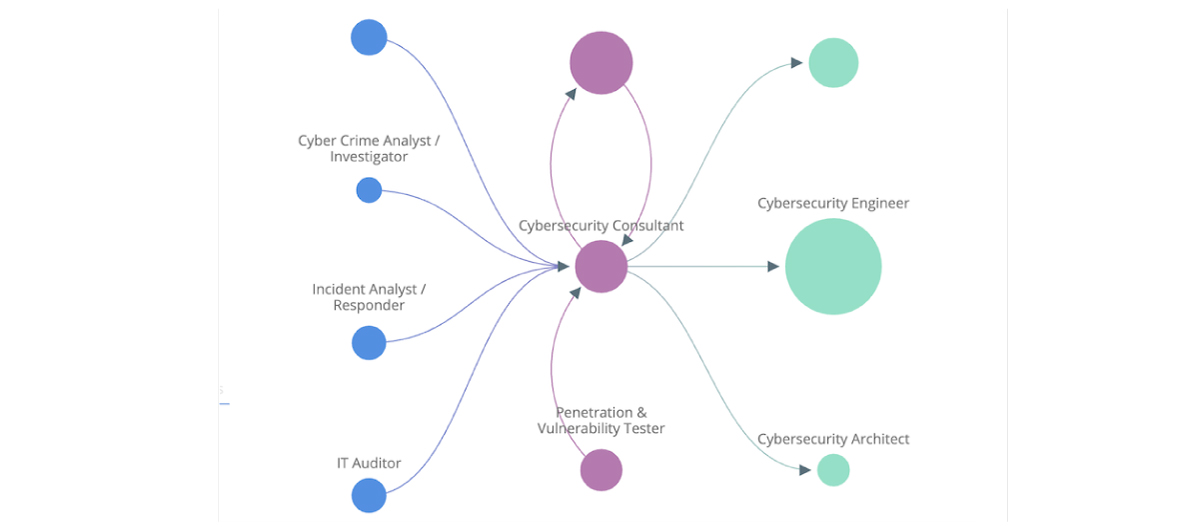
You can consider these jobs if you already have an IT background or hands-on experience in another technical field.
Information Security Analyst
An information security analyst is responsible for protecting an organization’s electronic data from hackers and other external threats. You’ll need a strong background in IT and programming languages like Python or C++.
Related Read: Become a Security Analyst: Requirements and Salaries
IT Auditor
An IT auditor primarily works on internal systems, ensuring they’re configured correctly and safe from outside attacks. They also help improve security by looking for ways the company could make its infrastructure more resilient against cyber threats.
Cryptographer
A cryptographer uses encryption techniques to keep sensitive data safe from prying eyes—they may work for companies or governments as part of their operations team.
Security Engineer
This job is focused on building secure systems and networks and preventing attacks on them. A security engineer typically has experience working with computers, software, and networks.
Penetration Tester
This job involves testing the security of systems and networks by finding vulnerabilities that attackers could exploit. The penetration tester must know how to exploit these weaknesses without causing damage or harm to the system or network they’re testing.
Resources To Land an Entry-Level Cybersecurity Job

Let’s take a look at some of the best resources available for people who are just starting their careers as cybersecurity professionals.
Job Boards
Job boards are a great way to find entry-level cybersecurity jobs and connect with recruiters. Here are some tips.
General Job Boards
When starting out, it’s important to cast a wide net and find as many options as possible. Start with the general job boards, like Indeed, Glassdoor, or AngelList. These sites will give you the most options across industries and regions but also be the most competitive. You can also use these sites to get a sense of what companies are looking for in terms of education and experience.
Niche and Industry-Specific Job Boards
Niche job boards like cybersecurityjobboards.com are another excellent resource for finding cybersecurity positions. They’re usually focused on specific industries or types of companies. Some niche job boards are focused on particular technologies (like cloud security), while others focus on careers for women, such as Women In Cybersecurity.
Network
Here are two ways to use networking websites to make the most of your career.

LinkedIn is the most well-known social network for professionals, and it’s a great place to start building your cybersecurity network.
You can use this platform to connect with other people in your field or cybersecurity companies, find out about jobs and internships, and even share information about events happening in your area.
It’s also a great way to keep up on news related to cybersecurity and get advice from peers who’ve been there longer than you have.
Online Communities
If you’re looking for more of an intimate experience, there are many online communities where cybersecurity professionals can interact.
Many of these communities have websites where members can post articles or blog posts about topics that interest them. Some even provide forums where users can discuss various topics of interest with one another in real-time.
Average Cybersecurity Salaries
If you’re looking for a job in cybersecurity, your average salary will depend on where you live, what company you work for, and the level of experience you hold.
Entry-level
Entry-level cybersecurity professionals with less than one year of experience earn an average salary of $97,155 per year. This includes the base pay plus commission.
Mid-level
The average salary for a mid-level cybersecurity professional with up to three years of experience is $102,892 annually.
Senior-level
Senior-level cybersecurity analysts can earn an average of $105,652 with up to six years of experience and $116,323 for more than ten years of experience.
FAQs About Getting Into Cybersecurity
We’ve got the answers to your most frequently asked questions.
Is It Hard To Get a Cybersecurity Job?
The short answer is no, it’s not hard to get a cybersecurity job. Cybersecurity jobs are in high demand, and there are plenty of opportunities for career growth. In fact, according to the Bureau of Labor Statistics, the field is expected to expand by more than 30% by 2030.
Can a Beginner Learn Cybersecurity?
Yes! Learning cybersecurity as a beginner can be tricky, but it’s not impossible. Multiple resources such as cybersecurity courses and bootcamps can help you understand the basics of cybersecurity and get you started on your career path.
Can I Get Into Cybersecurity Without Knowing How To Code?
Yes. You can get into cybersecurity without knowing how to code, but you should be proficient with programming languages if you want to advance your career.
Some entry-level jobs in cybersecurity do not require coding skills, but companies are increasingly looking for people with programming skills to fill higher-level cybersecurity roles.
Can You Get Into Cybersecurity Without an IT Background?
Yes. Many people come to the field with a non-technical background, but if you don’t have technical skills now, there are still ways to develop them on your own time.
You can start by taking online courses or getting certifications in network security or ethical hacking. You may also want to try volunteering at an organization or teaching yourself how to code on your own time.
Since you’re here…
There are hundreds of thousands of vacant cybersecurity jobs, and one of them has your name on it. You can enter the industry in 6 months flat with our Cybersecurity Course. We’ve helped over 10,000 students make huge career changes with our fully flexible mentor-led bootcamps. Explore our free cybersecurity curriculum today to start your career switch story.







